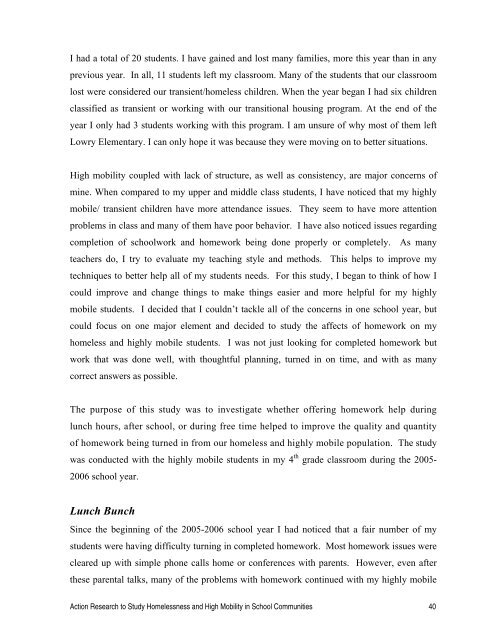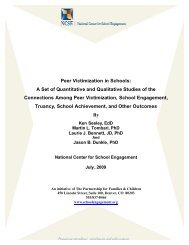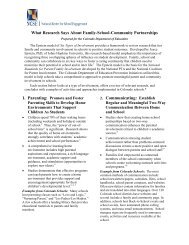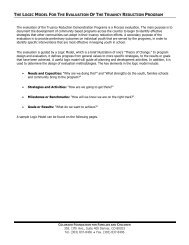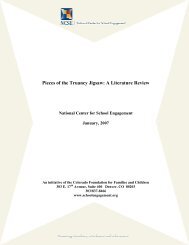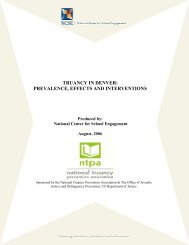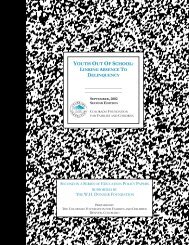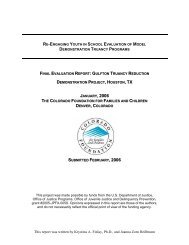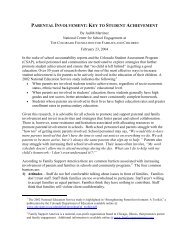Section 1: Academic Achievement - National Center for School ...
Section 1: Academic Achievement - National Center for School ...
Section 1: Academic Achievement - National Center for School ...
You also want an ePaper? Increase the reach of your titles
YUMPU automatically turns print PDFs into web optimized ePapers that Google loves.
I had a total of 20 students. I have gained and lost many families, more this year than in any<br />
previous year. In all, 11 students left my classroom. Many of the students that our classroom<br />
lost were considered our transient/homeless children. When the year began I had six children<br />
classified as transient or working with our transitional housing program. At the end of the<br />
year I only had 3 students working with this program. I am unsure of why most of them left<br />
Lowry Elementary. I can only hope it was because they were moving on to better situations.<br />
High mobility coupled with lack of structure, as well as consistency, are major concerns of<br />
mine. When compared to my upper and middle class students, I have noticed that my highly<br />
mobile/ transient children have more attendance issues. They seem to have more attention<br />
problems in class and many of them have poor behavior. I have also noticed issues regarding<br />
completion of schoolwork and homework being done properly or completely. As many<br />
teachers do, I try to evaluate my teaching style and methods. This helps to improve my<br />
techniques to better help all of my students needs. For this study, I began to think of how I<br />
could improve and change things to make things easier and more helpful <strong>for</strong> my highly<br />
mobile students. I decided that I couldn’t tackle all of the concerns in one school year, but<br />
could focus on one major element and decided to study the affects of homework on my<br />
homeless and highly mobile students. I was not just looking <strong>for</strong> completed homework but<br />
work that was done well, with thoughtful planning, turned in on time, and with as many<br />
correct answers as possible.<br />
The purpose of this study was to investigate whether offering homework help during<br />
lunch hours, after school, or during free time helped to improve the quality and quantity<br />
of homework being turned in from our homeless and highly mobile population. The study<br />
was conducted with the highly mobile students in my 4 th grade classroom during the 2005-<br />
2006 school year.<br />
Lunch Bunch<br />
Since the beginning of the 2005-2006 school year I had noticed that a fair number of my<br />
students were having difficulty turning in completed homework. Most homework issues were<br />
cleared up with simple phone calls home or conferences with parents. However, even after<br />
these parental talks, many of the problems with homework continued with my highly mobile<br />
Action Research to Study Homelessness and High Mobility in <strong>School</strong> Communities 40


